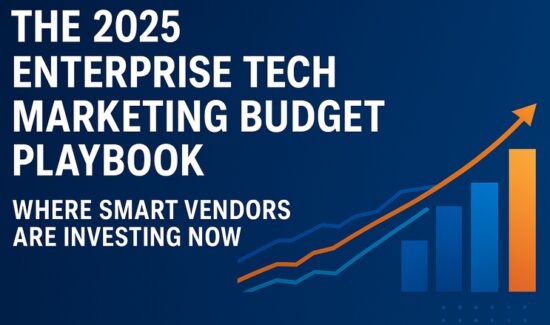Chatting for Success: How Messaging Apps Are Revolutionizing B2C Communications

As part of Solutions Review’s Contributed Content Series—a collection of contributed articles written by our enterprise tech thought leader community—Prashant Tomar, a product leader with a rich background in product management and engineering across Fortune 500 companies, explains how messaging apps are changing B2C communications.
 Humans have always found a way to communicate with one another. From cave paintings and smoke signals to telephone and email, people crave interaction. Today, digital messaging has emerged as a highly effective platform for real-time communication. According to Tech Report, an astounding three billion people used messaging apps in 2021, with over 140 billion messages sent daily over apps like WhatsApp and Messenger. This surge isn’t just about staying connected with friends and family—it’s fundamentally reshaping business communication, too.
Humans have always found a way to communicate with one another. From cave paintings and smoke signals to telephone and email, people crave interaction. Today, digital messaging has emerged as a highly effective platform for real-time communication. According to Tech Report, an astounding three billion people used messaging apps in 2021, with over 140 billion messages sent daily over apps like WhatsApp and Messenger. This surge isn’t just about staying connected with friends and family—it’s fundamentally reshaping business communication, too.
Messaging apps provide instant connectivity between business professionals and customers regardless of time or location and help businesses deliver a more personalized customer experience based on direct and immediate engagement. This emerging trend poses exciting yet complex challenges for companies and marketers. While CMOs and CTOs navigate these new waters, the potential benefits are massive, offering streamlined operations and even revolutionizing business models.
In financial services, one of Spain’s leading insurance providers, Mutua Madrileña, offers personalized messaging for customers via WhatsApp on more than 1,000 topics. In the first six months, the company received nearly half a million messages, making up 23 percent of digital customer inquiries and resulting in a process that is now 30 percent faster.
The Role of Messaging Apps in the B2C Marketplace
To fully understand the impact digitized messaging has had on modern business, it’s essential to grasp its overall role in B2C communications. Messaging apps help companies respond promptly to customer inquiries and requests, regardless of operating business hours. A recent report from Forrester states that 54 percent of consumers rank having their questions and issues quickly resolved as their top priority when interacting with a business.
Organizations can earn customer loyalty and increase retention by improving the customer’s interactions with the business. Vodafone, a German telecommunications company, widely utilizes WhatsApp for customer messaging. It has reached more than 200,000 customers each month. Its artificial intelligence (AI) chatbot, TOBi, recognizes more than 250 customer needs, only passing requests over to employees if it encounters issues it is not equipped to solve.
Another example can be seen with Burberry, a luxury fashion house headquartered in London. It adopted WeChat as a central component of its current marketing campaign, helping customers find local stores and discover clothing and other luxury items. Messaging apps open an instant and always available line of communication between the business and the customer—a primary reason for implementing a messaging app into a central infrastructure.
Benefits of Messaging Apps in B2C Interactions
Apps are communication tools with broad reach and real-time engagement. They can deliver several large-scale benefits for organizations when implemented correctly, including:
- Real-time communication: Real-time conversations enhance customer satisfaction and engagement.
- Automation and AI integration: Chatbots and AI integration often resolve customer inquiries and issues by quickly providing automatic responses or helpful resources, allowing employees to focus their time and efforts on other strategic initiatives.
- Increased engagement: The informal and interactive multimedia content sharing encourages further engagement from customers, who may feel more comfortable and inclined to initiate conversations.
- Cost control: Apps can be a cost-effective communication tool, reducing the need for more expensive customer service solutions like call centers.
- Secure communication: Apps provide end-to-end encryption, ensuring customer conversations remain private and secure.
Addressing Concerns with B2C Messaging
While messaging apps provide modern businesses with numerous and growing benefits, specific challenges exist. When a customer interacts with a chatbot or automated message asking for private or sensitive information to resolve an issue, they want to know that the data is safely guarded. As such, organizations must select a messaging app with advanced security features such as regular data backups, access controls, and secure storage options.
Equally important is the clear mechanism for obtaining and recording user consent for communication and data processing in compliance with data protection laws like Europe’s General Data Protection Regulation (GDPR). This approach not only adheres to legal requirements but also builds customer trust. Integration and system compatibility also play a crucial role. Messaging solutions must integrate seamlessly with existing CRM and data systems to ensure consistent data flow and uninterrupted customer service.
Moreover, ensuring that these solutions are compatible with the diverse range of devices and platforms used by customers is vital for accessibility and effectiveness. Inadequate messaging and customer communications can hurt an organization if they aren’t suitably and efficiently implemented. According to a recent study, 80 percent of respondents said they would stop doing business with a company due to poor customer experience. Another significant aspect is the balance between quality customer service and automation. Automated systems like chatbots must provide accurate and helpful responses to maintain customer satisfaction. It’s critical to balance this automation with opportunities for human interaction, addressing customers’ varied preferences and needs.
The Future of B2C Communications with Modern Messaging
The future of business messaging is becoming a dynamic and immersive blend of technology, integration, and customer-centric experiences. With the expanding evolution of AI and machine learning, messaging platforms are primed to offer more sophisticated, personalized interactions. Advanced AI will enable chatbots to provide context-aware responses, ensuring efficiency while preserving the option for human interaction when necessary.
A vital aspect of this evolution is the development of richer in-app functionalities. In-app browsers will allow customers to seamlessly browse products and services within the messaging app, streamlining the purchasing process. Integrated product catalogs will enable direct viewing and selection of products within a chat, with AI-driven recommendations enhancing personalization.
This integration, paired with advanced payment solutions, will make transactions more secure and user-friendly. For example, WhatsApp creates an easier flow for in-app shopping purchases by partnering with payment gateway providers to allow users to pay directly within the apps. Incorporating AR within these platforms can further enrich the shopping experience by enabling customers to visualize products in their surroundings.
While there’s no telling exactly where messaging apps will take businesses in the coming years, the bar can only be set higher for customer support and communication standards by including these innovative tools. Customer retention and loyalty heavily rely on the communication efforts of the business. If global enterprises embrace these applications and leverage them to increase their B2C communications and engagement, business leaders and their consumers will significantly benefit from a healthy and thriving professional relationship.






















